Agronomic Information at Your Fingertips
Find information on the technical aspects of sulphur, micronutrients, seed bulking and much more. For more information, view our Agronomic Tech Bulletin, TigerTech Newsletters, and Field Trials collections.
Sulphur White Papers
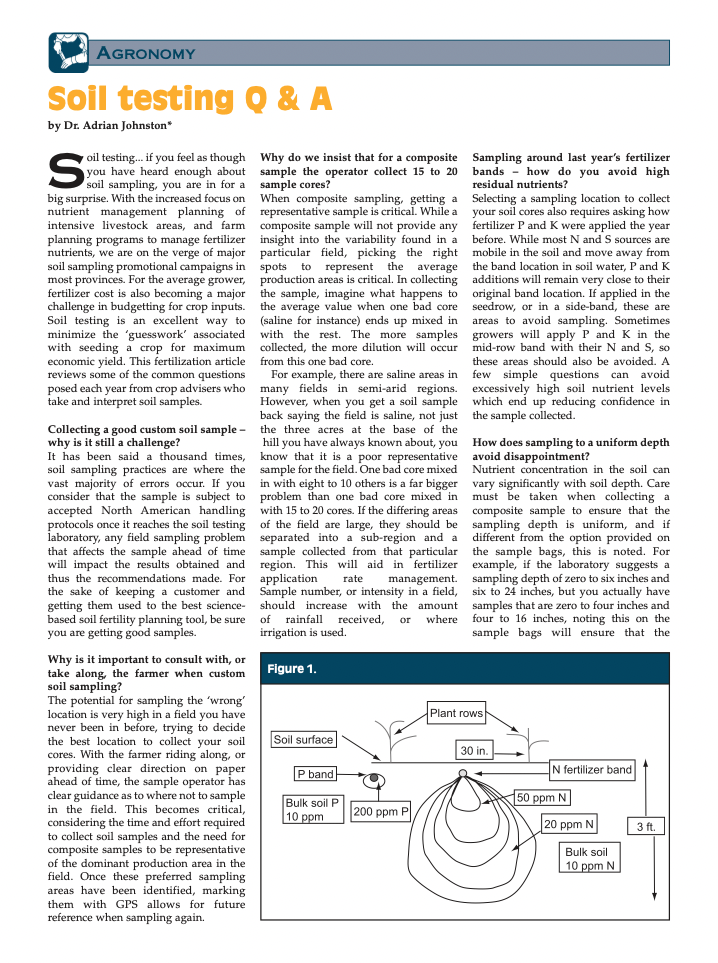
Soil testing…if you feel as though you have heard enough about soil sampling, you are in for a big surprise. With the increased focus on nutrient management planning of intensive livestock areas, and farm planning programs to manage fertilizer nutrients, we are on the verge of major soil sampling promotional campaigns in most provinces. For the average grower, fertilizer cost is also becoming a major challenge in budgetting for crop inputs. Soil testing is an excellent way to minimize the ‘guesswork’ associated with seeding a crop for maximum economic yield. This fertilization article reviews some of the common questions posed each year from crop advisers who take and interpret soil samples.
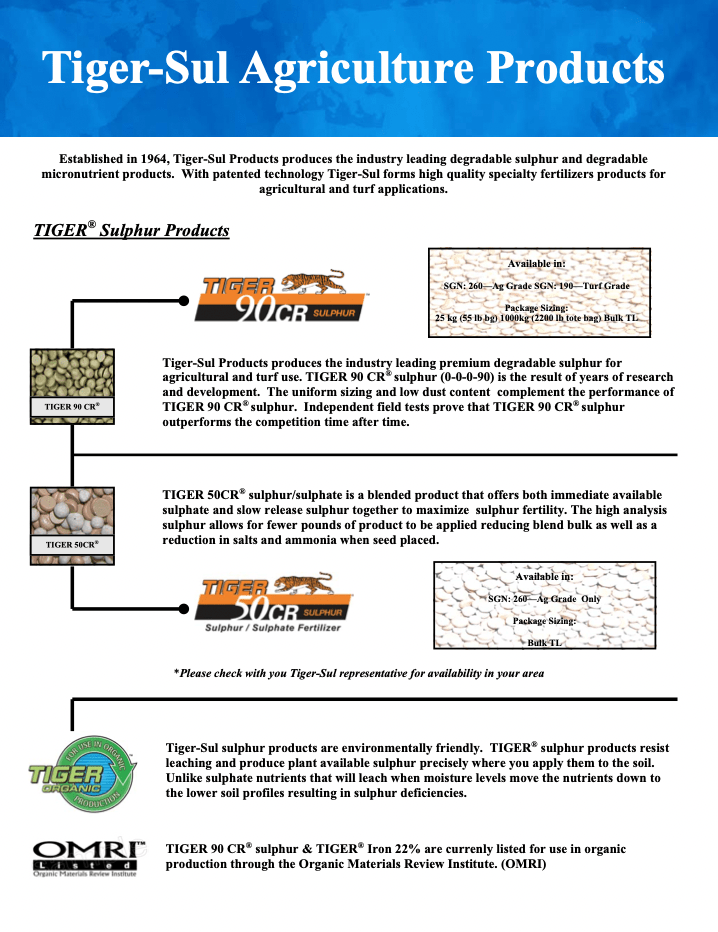
Established in 1964, Tiger-Sul Products produces the industry leading degradable sulphur and degradable micronutrient products. With patented technology Tiger-Sul forms high quality specialty fertilizers products for agricultural and turf applications.
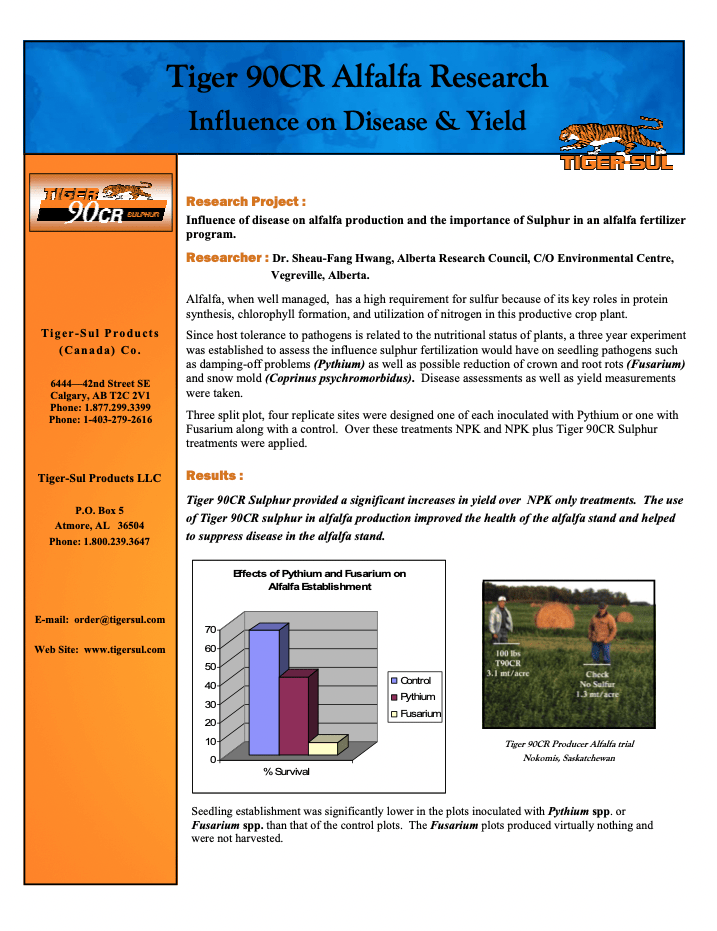
Research Project: Influence of disease on alfalfa production and the importance of Sulphur in an alfalfa fertilizer program.
Alfalfa, when well managed, has a high requirement for sulfur because of its key roles in protein synthesis, chlorophyll formation, and utilization of nitrogen in this productive crop plant.
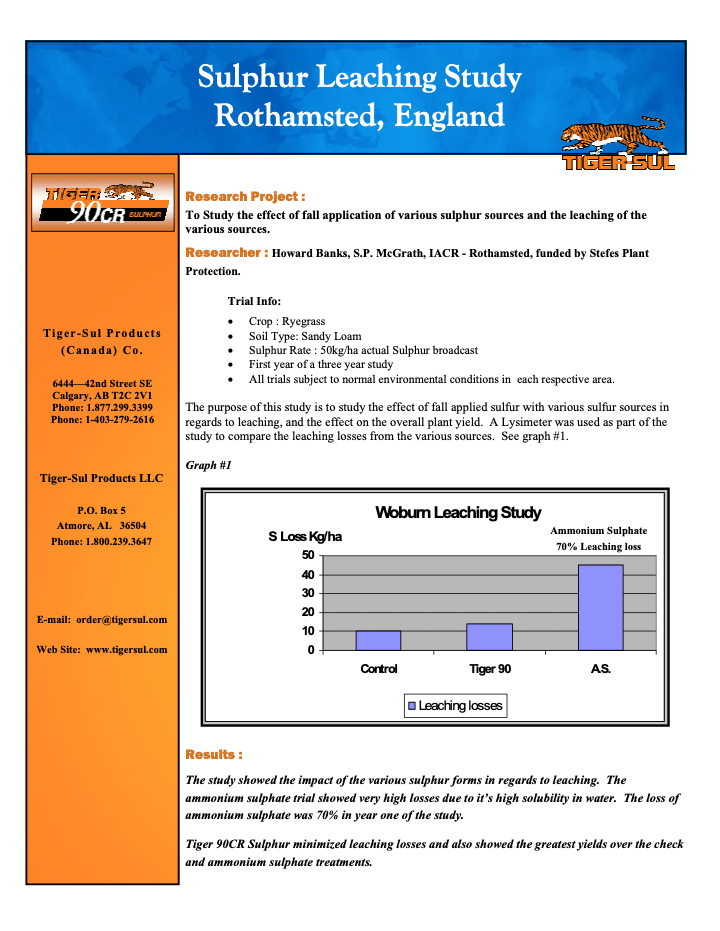
Research Project: To Study the effect of fall application of various sulphur sources and the leaching of the various sources.
The purpose of this study is to study the effect of fall applied sulfur with various sulfur sources in regards to leaching, and the effect on the overall plant yield. A Lysimeter was used as part of the study to compare the leaching losses from the various sources.
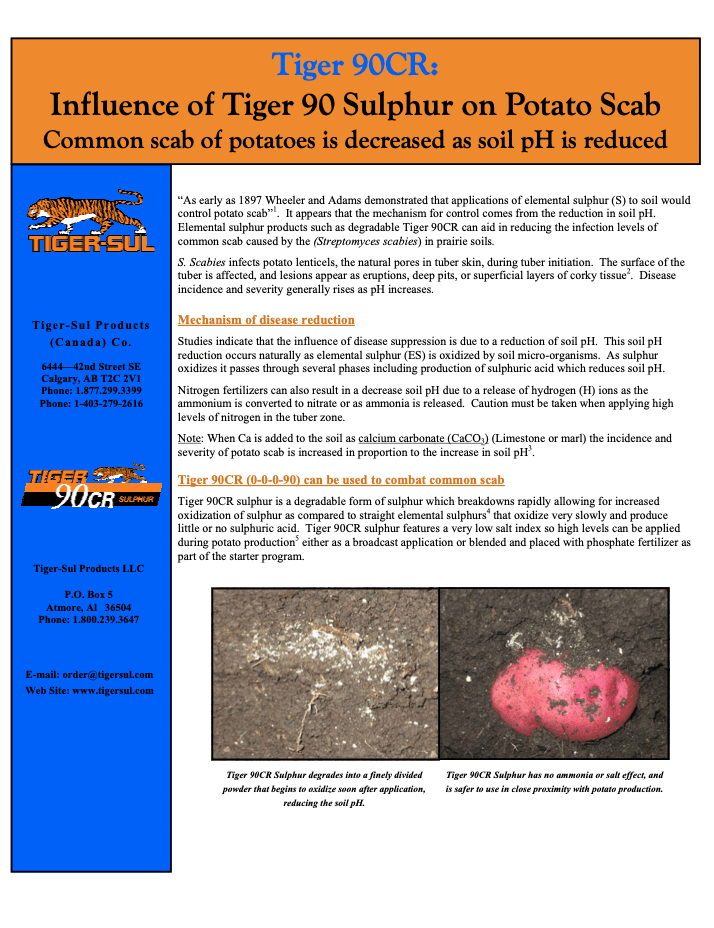
“As early as 1897 Wheeler and Adams demonstrated that applications of elemental sulphur (S) to soil would control potato scab.” It appears that the mechanism for control comes from the reduction in soil pH. Elemental sulphur products such as degradable Tiger 90CR can aid in reducing the infection levels of common scab caused by the (Streptomyces scabies) in prairie soils.

With the increased need for world food production, in the new millennium, and the reduction in good farm land around the world, we must look at maximizing yields and quality of our crop production. To do this, however, means that land that is not suitable to crop production must be put into production. This means that we must look at the improvement of these soils. Improvements in soil texture, structure, and growth characteristics are all possible by using chemical methods of soil amending on alkali and saline-alkali soils

Tiger-Sul believes sulphur needs to be managed for optimum plant growth. Tiger’s degradable sulphur fertilizers incorporated into a well-balanced fertility program can provide a season long sulphur supply that minimizes losses. Tiger 50CR® sulphur/sulphate is a blend of ammonium sulphate and Tiger 90 CR® sulphur, that is designed for efficiency and is part of their “Sulphur Management Program™.”
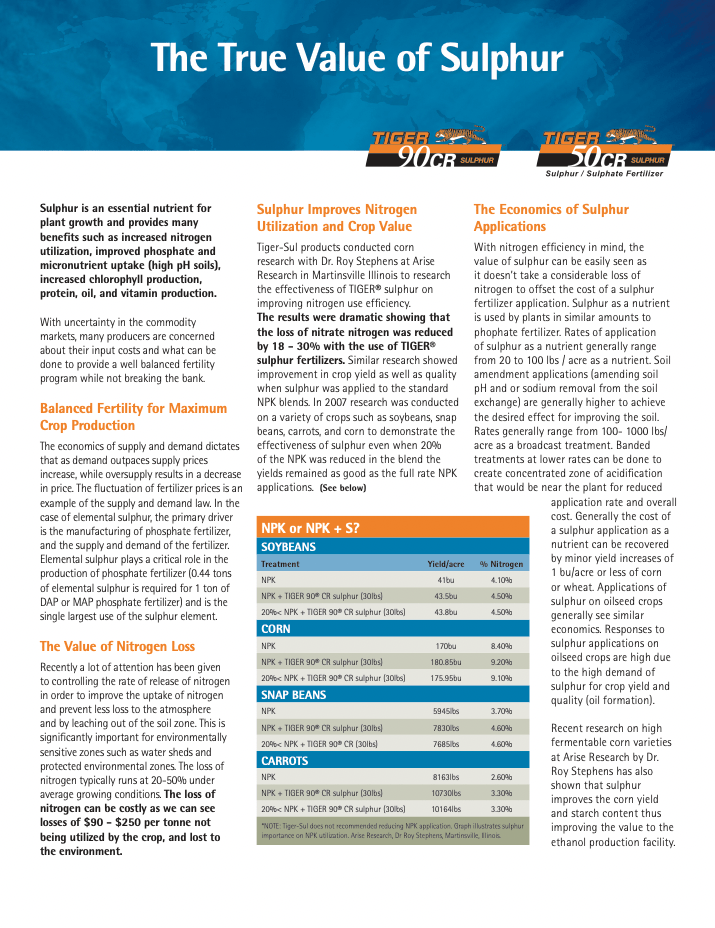
Sulphur is an essential nutrient for plant growth and provides many benefits such as increased nitrogen utilization, improved phosphate and micronutrient uptake (high pH soils), increased chlorophyll production, protein, oil, and vitamin production.
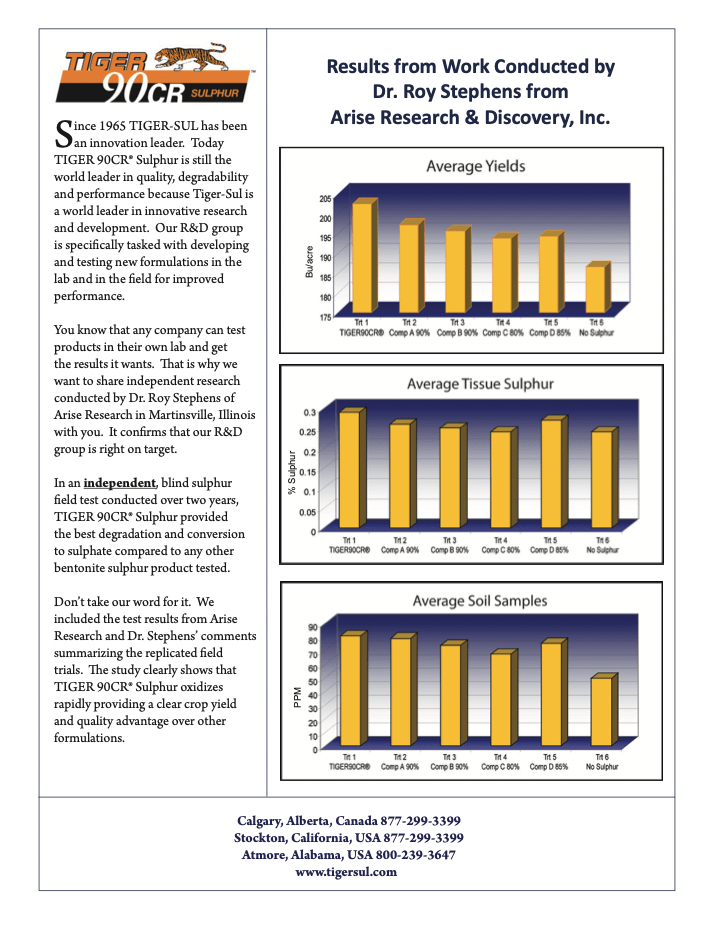
In an independent, blind sulphur field test conducted over two years, Tiger 90CR® Sulphur provided the best degradation and conversion to sulphate compared to any other bentonite sulphur product tested.
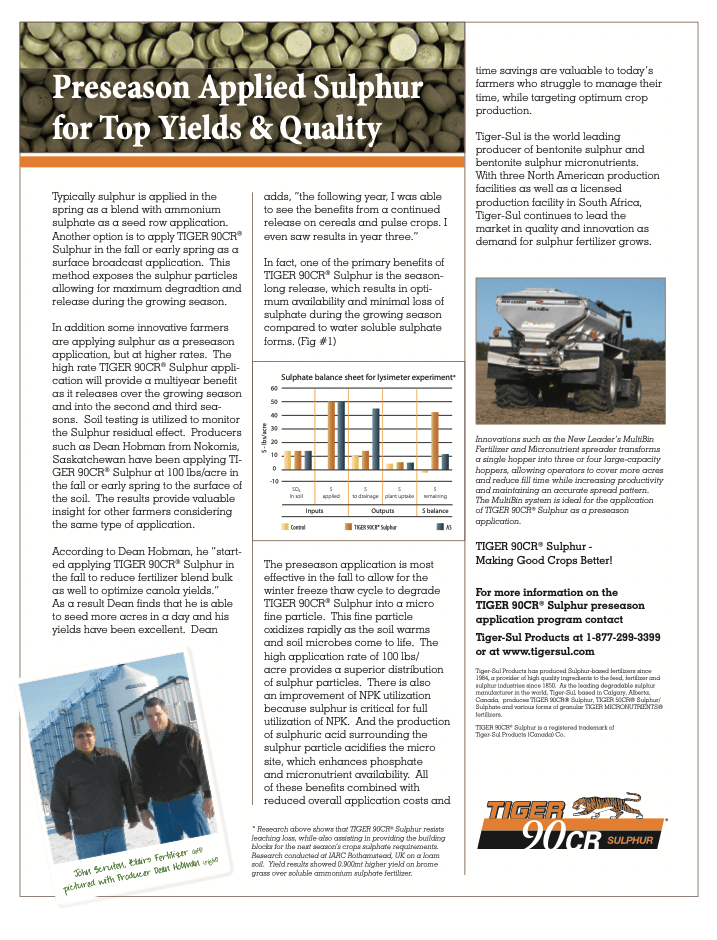
Typically sulphur is applied in the spring as a blend with ammonium sulphate as a seed row application. Another option is to apply Tiger 90CR® Sulphur in the fall or early spring as a surface broadcast application. This method exposes the sulphur particles allowing for maximum degradtion and release during the growing season.
Micronutrient White Papers

Soil testing…if you feel as though you have heard enough about soil sampling, you are in for a big surprise. With the increased focus on nutrient management planning of intensive livestock areas, and farm planning programs to manage fertilizer nutrients, we are on the verge of major soil sampling promotional campaigns in most provinces. For the average grower, fertilizer cost is also becoming a major challenge in budgetting for crop inputs. Soil testing is an excellent way to minimize the ‘guesswork’ associated with seeding a crop for maximum economic yield. This fertilization article reviews some of the common questions posed each year from crop advisers who take and interpret soil samples.

Established in 1964, Tiger-Sul Products produces the industry leading degradable sulphur and degradable micronutrient products. With patented technology Tiger-Sul forms high quality specialty fertilizers products for agricultural and turf applications.

Research Project: Influence of disease on alfalfa production and the importance of Sulphur in an alfalfa fertilizer program.
Alfalfa, when well managed, has a high requirement for sulfur because of its key roles in protein synthesis, chlorophyll formation, and utilization of nitrogen in this productive crop plant.

Research Project: To Study the effect of fall application of various sulphur sources and the leaching of the various sources.
The purpose of this study is to study the effect of fall applied sulfur with various sulfur sources in regards to leaching, and the effect on the overall plant yield. A Lysimeter was used as part of the study to compare the leaching losses from the various sources.

“As early as 1897 Wheeler and Adams demonstrated that applications of elemental sulphur (S) to soil would control potato scab.” It appears that the mechanism for control comes from the reduction in soil pH. Elemental sulphur products such as degradable Tiger 90CR can aid in reducing the infection levels of common scab caused by the (Streptomyces scabies) in prairie soils.
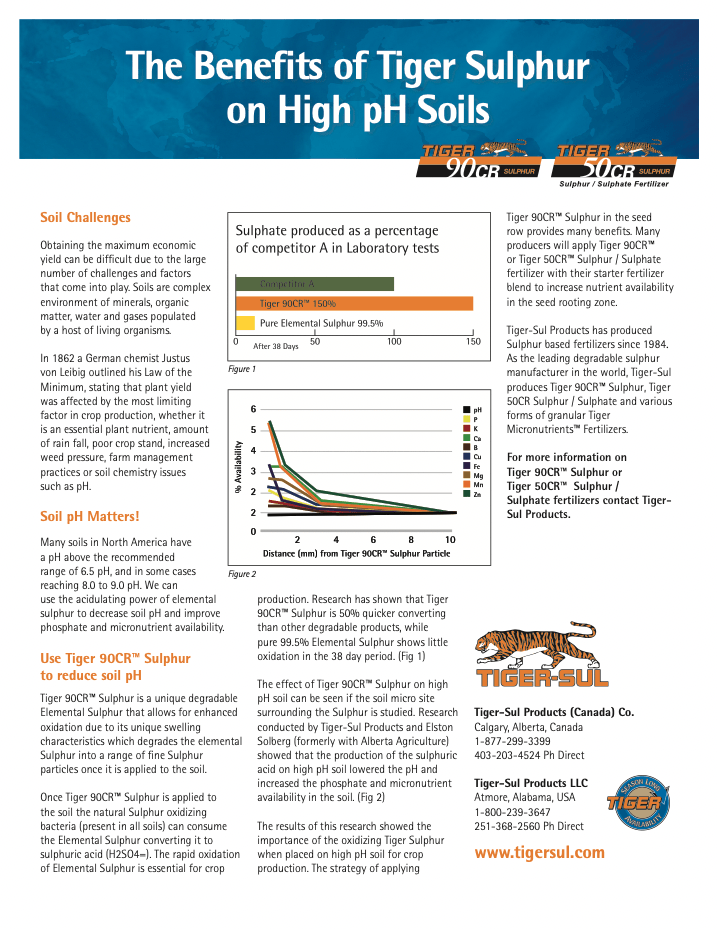
Many soils in North America have a pH above the recommended range of 6.5 pH, and in some cases reaching 8.0 to 9.0 pH. We can use the acidulating power of elemental sulphur to decrease soil pH and improve phosphate and micronutrient availability.

Sulphur is an essential nutrient for plant growth and provides many benefits such as increased nitrogen utilization, improved phosphate and micronutrient uptake (high pH soils), increased chlorophyll production, protein, oil, and vitamin production.

Typically sulphur is applied in the spring as a blend with ammonium sulphate as a seed row application. Another option is to apply Tiger 90CR® Sulphur in the fall or early spring as a surface broadcast application. This method exposes the sulphur particles allowing for maximum degradtion and release during the growing season.
Seed Bulking White Papers
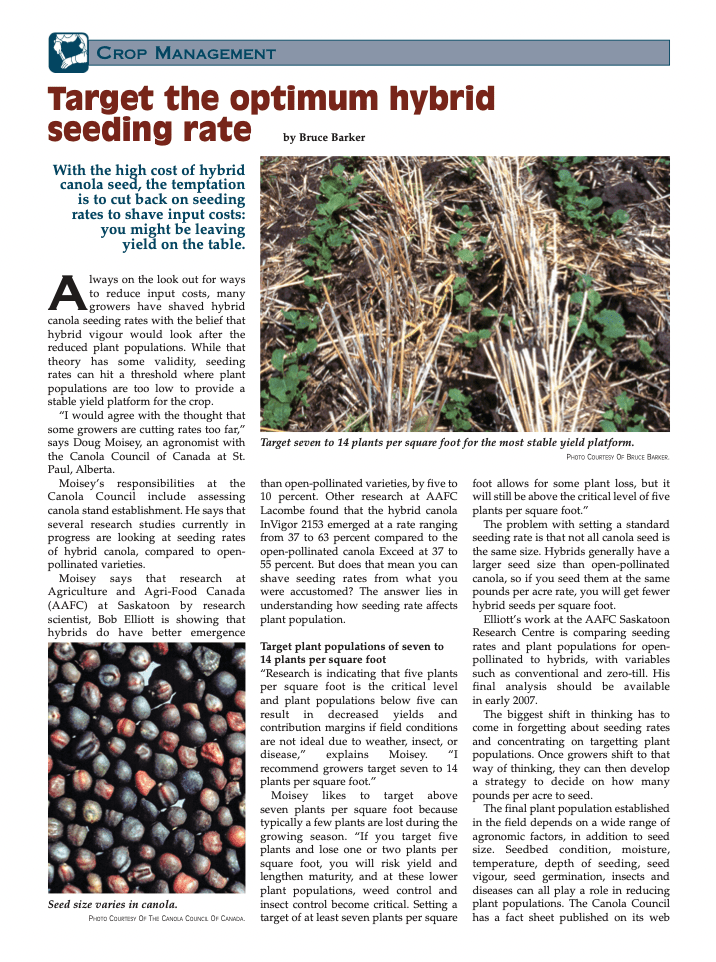
Always on the look out for ways to reduce input costs, many growers have shaved hybrid canola seeding rates with the belief that hybrid vigour would look after the reduced plant populations. While that theory has some validity, seeding rates can hit a threshold where plant populations are too low to provide a stable yield platform for the crop.

Tiger Micronutrients® fertilizers began in the lab in Calgary, Canada, where Tiger-Sul Products tested the theory of taking extremely fine metal oxide particles, and incorporating them into a conversion matrix. This provides uniform distribution and quick conversion to the plant available sulphate form. The result – the development of TIGER MICRONUTRIENTS® fertilizers as a new class of micronutrients that produce sulphuric acid in the vicinity of the micronutrient sulphur matrix.
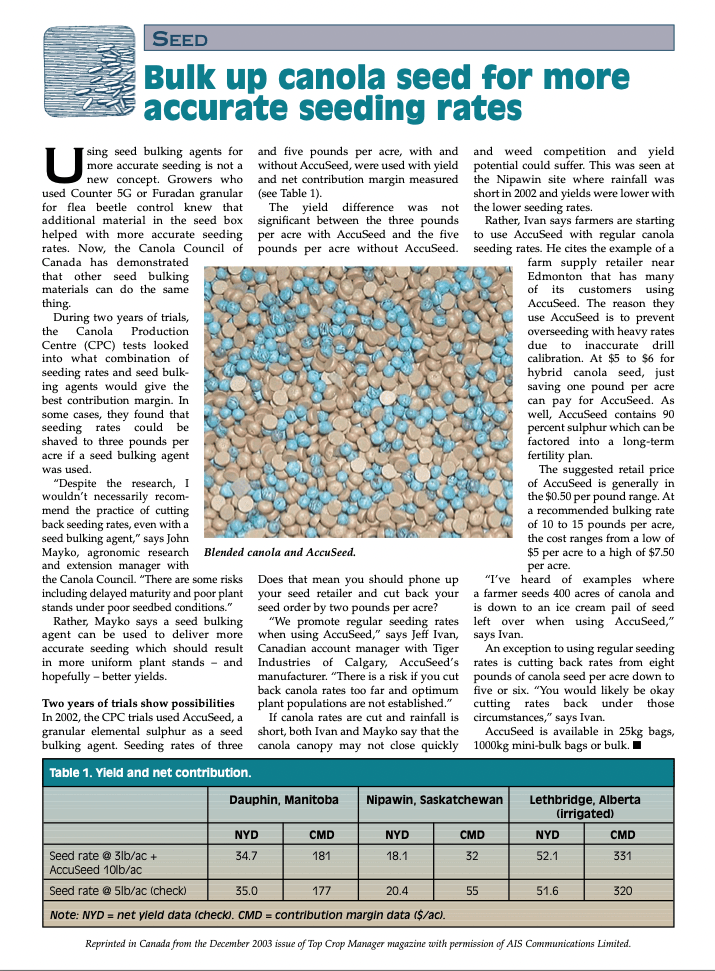
Using seed bulking agents for more accurate seeding is not a new concept. Growers who used Counter 5G or Furadan granular for flea beetle control knew that additional material in the seed box helped with more accurate seeding rates. Now, the Canola Council of Canada has demonstrated that other seed bulking materials can do the same thing.

Seeding technology has advanced with the dawn of AccuSeed. AccuSeed bulking technology allows the grower to accurately apply canola seed and other small seeded crops with little worry about over or under applications with their seeding operations.
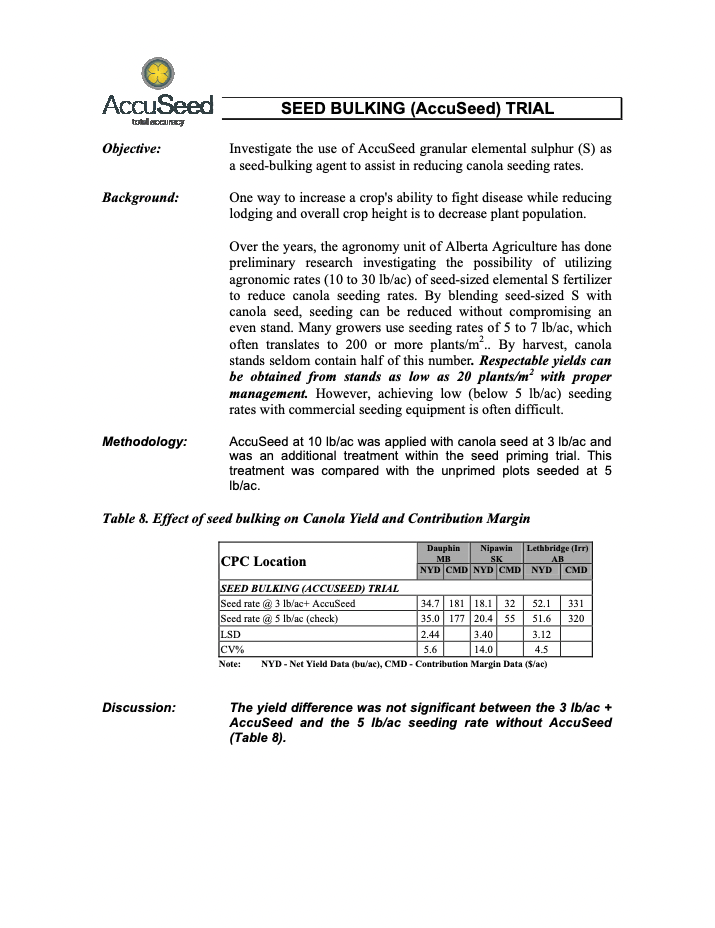
Objective: Investigate the use of AccuSeed granular elemental sulphur (S) as a seed-bulking agent to assist in reducing canola seeding rates. Background: One way to increase a crop’s ability to fight disease while reducing lodging and overall crop height is to decrease plant population.
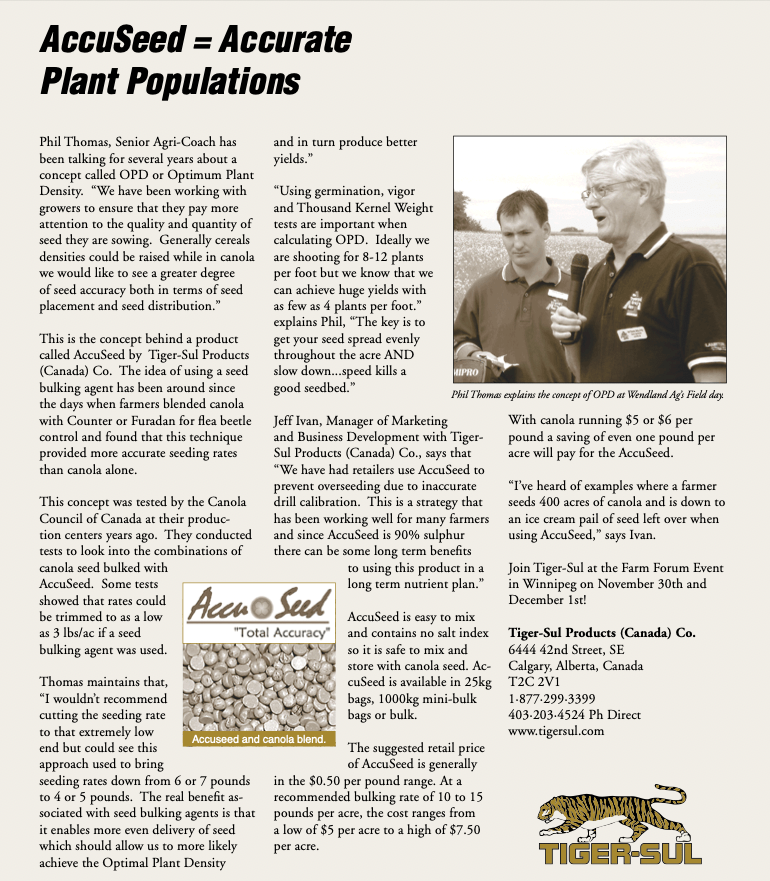
Phil Thomas, Senior Agri-Coach has been talking for several years about a concept called OPD or Optimum Plant Density. “We have been working with growers to ensure that they pay more attention to the quality and quantity of seed they are sowing. Generally cereals densities could be raised while in canola we would like to see a greater degree of seed accuracy both in terms of seed placement and seed distribution.”
This is the concept behind a product called AccuSeed by Tiger-Sul Products (Canada) Co. The idea of using a seed bulking agent has been around since the days when farmers blended canola with Counter or Furadan for flea beetle control and found that this technique provided more accurate seeding rates than canola alone.

